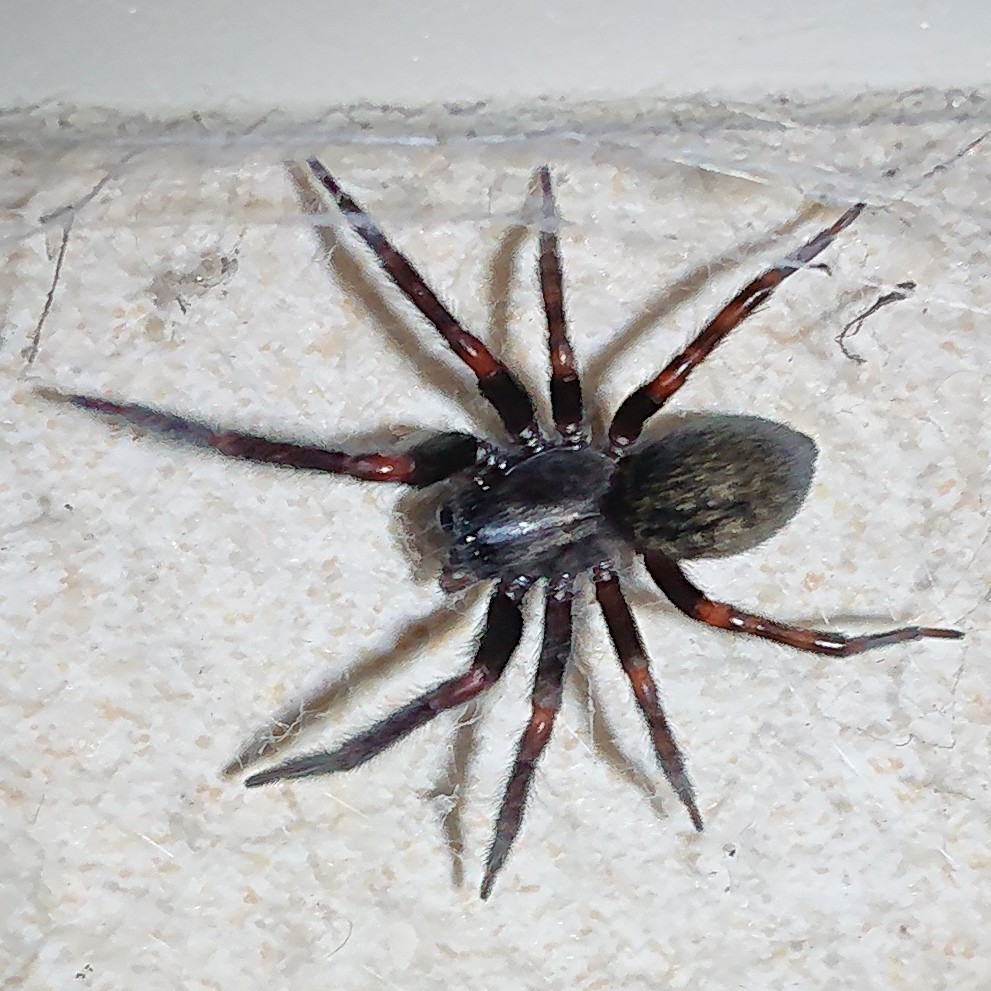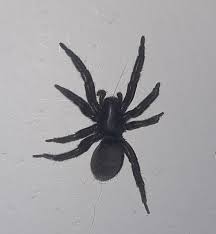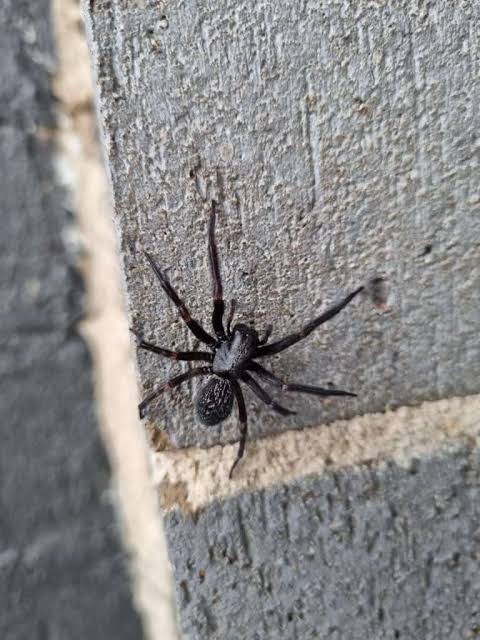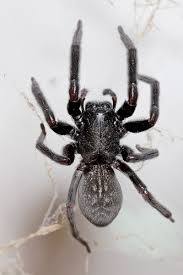Is a Black House Spider Poisonous? What You Need to Know
Black house spiders are a common sight in many homes across Australia. These spiders are known for their dark brown to black coloration and robust body shape. While they may look intimidating, many people wonder whether black house spiders are poisonous and pose a danger to humans.
Is a black house spider poisonous?Are Black House Spiders dangerous?
Danger to humans
Black House Spiders are timid animals and bites from them are infrequent. The bite may be quite painful and cause local swelling. Symptoms such as nausea, vomiting, sweating and giddiness are occasionally recorded. In a few cases skin lesions have developed after multiple bites.
A cold pack may relieve local pain. Seek medical attention if symptoms persist.
References
Brunet, B. 2008. Spider Watch: A guide to Australian spiders. Reed New Holland.
York Main, B. 1976. Spiders. Australian Naturalist Library, Sydney.
Identification
The Black House Spider belongs to the family Desidae. Related species are found throughout Australia.
The Black House Spider (Badumna insignis) is a dark robust spider, with grey hairs usually visible on the carapace. Females are larger than males but there is a great range in adult sizes. The carapace and legs are dark brown to black, and the abdomen is charcoal grey with a dorsal pattern of white markings (sometimes indistinct).
The web structure includes one or more ‘funnel-like’ entrances to the spider’s retreat, which is sometimes misunderstood as a Funnel-web Spider web. However, Black House Spiders are not at all related to Australian funnel-webs, nor similar in appearance, size or life history. The retreat of a true Australian Funnel-web Spider (famiy Atracidae) is usually less funnel-like and is often a burrow in the ground. Common Southern Tree Funnel-webs make burrows in tree-trunk crevices in similar habitats to Black House Spiders, but their crescent-shaped web entrances are disguised with detritus (eg, bark) particles embedded in the silk, whereas the silk of Badumna webs is exposed.

The answer is that while black house spiders are venomous, they are not considered dangerous to humans. According to the Australian Museum, black house spider bites are relatively common but rarely cause serious harm. The venom of these spiders is not potent enough to cause significant symptoms in most people, and bites are usually only mildly painful and may cause some swelling. However, as with any spider bite, it is important to monitor the affected area and seek medical attention if symptoms worsen or persist.
Black House Spider Overview
As a professional entomologist, I have studied the Black House Spider extensively. In this section, I will provide an overview of this species, including its identification, habitat, and distribution.
Species Identification
The Black House Spider, also known as the Badumna insignis, is a common spider species found in Australia. It is a medium-sized spider, with a body length of approximately 1.5 cm. The color of the spider is usually dark brown to black, with a glossy appearance. The spider has eight legs, and the females are generally larger than the males.
Habitat and Distribution
The Black House Spider is commonly found in urban areas, particularly in and around buildings. They prefer to build their webs in dark, sheltered areas, such as wall cavities, roof voids, and window frames. They are also known to build their webs in outdoor locations such as under eaves and in garden sheds.

The Black House Spider is found throughout Australia, including Tasmania. However, they are most commonly found in the southern and eastern parts of the country. They are also found in New Zealand.
In conclusion, the Black House Spider is a common spider species found in Australia. It is not considered dangerous to humans, although its bite can be painful and cause local swelling. If you come across a Black House Spider, it is best to leave it alone and contact a pest control professional if necessary.
Toxicity and Venom
As a black house spider is venomous, it is natural to wonder if it is poisonous. However, it is essential to understand that venom and poison are two different things. Venom is a toxin that is injected into the body of the prey or predator, while poison is ingested or absorbed through the skin. Therefore, black house spiders are not poisonous, but they are venomous.
Venom Composition
The venom of black house spiders contains a mixture of neurotoxins, enzymes, and other proteins. The neurotoxins affect the nervous system of the prey or predator, while the enzymes help to break down the tissues and make it easier for the spider to digest the prey.
Effects of a Bite
A bite from a black house spider can be painful and cause local swelling. However, the spider is timid and bites from them are infrequent. Symptoms such as nausea, vomiting, sweating, and giddiness are occasionally recorded.
Medical Significance
The venom of a black house spider is poisonous but not lethal. Some people bitten experience severe pain around the bite site, heavy sweating, muscular pains, vomiting, headaches, and giddiness. If serious symptoms appear, first aid and medical attention should be sought as soon as possible.
It is essential to understand that black house spiders are not aggressive and only bite when they feel threatened. Therefore, it is best to leave them alone and avoid provoking them. If you find a black house spider in your house, it is best to capture and release it outside.
Human-Spider Interaction
As with any spider, human-spider interaction is possible with the black house spider. However, there are some common misconceptions about this spider that need to be addressed.
Common Misconceptions
One common misconception is that the black house spider is highly venomous and dangerous to humans. While it is true that the black house spider is venomous, it is not considered to be highly dangerous to humans. According to Animal Corner, the bite of a black house spider may be quite painful and cause local swelling, but it is not considered to be life-threatening.

Another misconception is that the black house spider is aggressive and will attack humans. This is not true. According to Spider Identifications, black house spiders are quite shy and will only come out of their nest to capture their prey before quickly retreating. They are not aggressive towards humans and will only bite if they feel threatened.
Preventing Bites
To prevent bites from black house spiders, it is important to take certain precautions. One way to prevent bites is to avoid disturbing their webs or nests. If you come across a black house spider, it is best to leave it alone and let it go about its business.
Another way to prevent bites is to wear protective clothing when working in areas where black house spiders are known to live. This includes wearing long sleeves and pants and gloves.
In conclusion, while the black house spider is venomous, it is not considered to be highly dangerous to humans. By taking certain precautions, such as avoiding disturbing their webs and wearing protective clothing, it is possible to prevent bites from black house spiders.
Pest Control and Management
When it comes to managing black house spiders, there are several methods that can be used. These methods fall into two categories: natural predators and chemical and non-chemical control methods.
Natural Predators
One way to control black house spider populations is to encourage natural predators. Some natural predators of black house spiders include birds, lizards, and other spiders. Encouraging these predators can help keep black house spider populations in check.
Chemical and Non-Chemical Control Methods
There are several chemical and non-chemical control methods that can be used to manage black house spider populations. Some non-chemical methods include removing clutter and debris from around the home, sealing cracks and crevices, and vacuuming up spiders and their webs.
Chemical methods include the use of insecticides. It is important to note that not all insecticides are effective against black house spiders. Additionally, insecticides can be harmful to humans and pets if not used properly. It is recommended to consult with a pest control professional before using any insecticides.
Overall, managing black house spider populations requires a combination of natural predators and control methods. By taking a proactive approach to pest control and management, homeowners can reduce the likelihood of black house spider infestations.

Conservation Status
As a common species of spider in Australia, the black house spider is not listed as endangered or threatened by any government or conservation organization. In fact, the black house spider is considered to be of “Least Concern” by the International Union for Conservation of Nature (IUCN).
Despite its lack of conservation concern, it is important to note that the black house spider plays an important role in the ecosystem as a predator of insects. This means that their presence can actually be beneficial in controlling populations of other pests in and around homes.
It is also worth mentioning that while the black house spider is venomous, it is not considered to be a significant threat to humans. Bites are rare and usually only occur when the spider is provoked or feels threatened. In most cases, the symptoms of a bite are mild and include pain, swelling, and redness at the site of the bite. However, in rare cases, more serious symptoms such as nausea, vomiting, and dizziness may occur.
Overall, while the black house spider may not be a conservation concern, it is still an important member of the ecosystem and should be treated with respect and caution.
